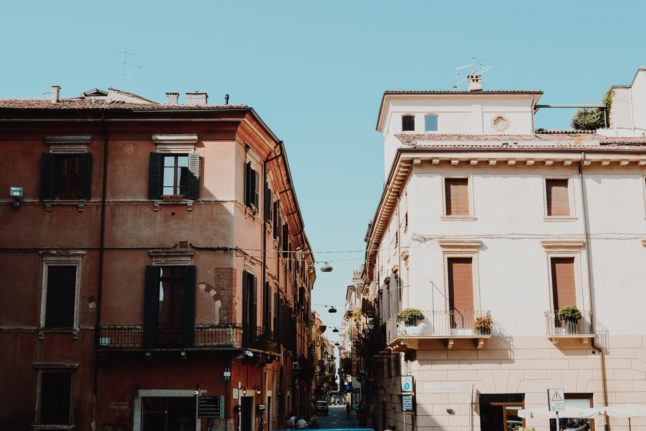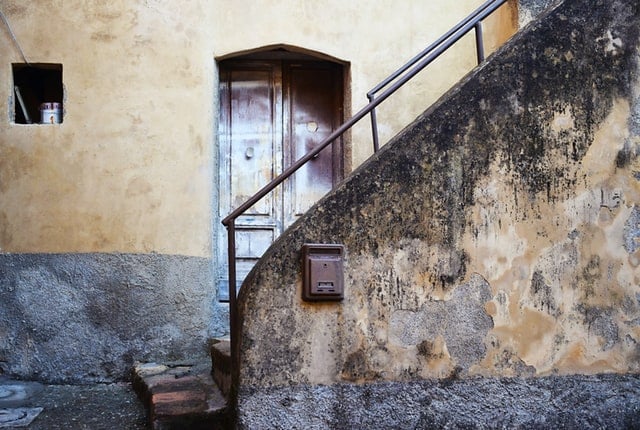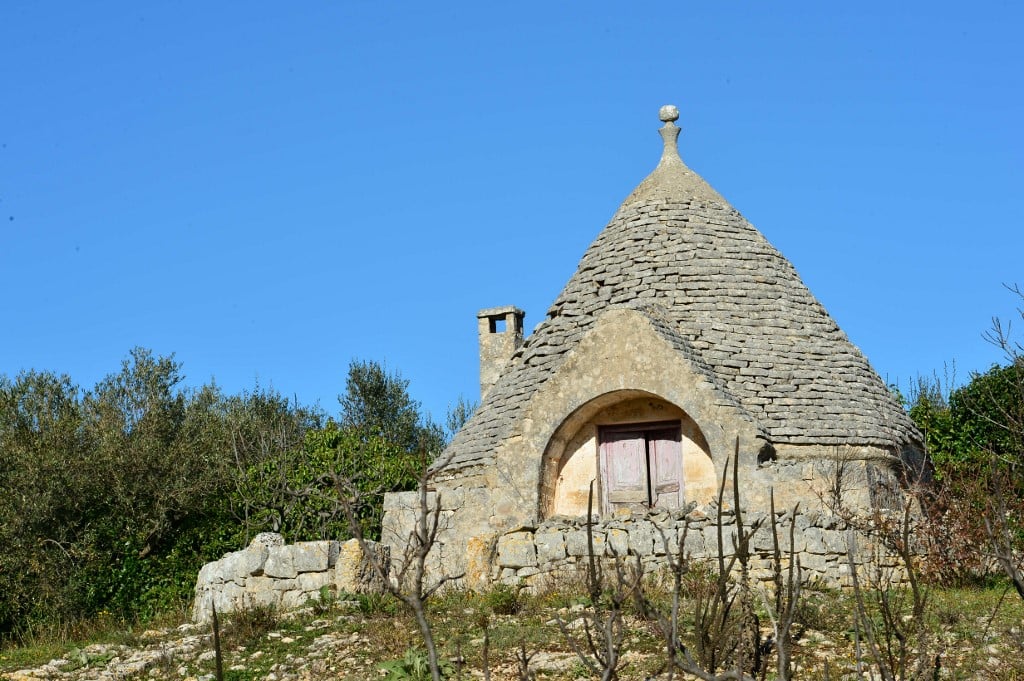Homeowners in Italy can benefit from a variety of building bonuses on offer, which have been extended throughout 2021.
There’s even more financial aid you could get your hands on in addition to the widely reported Superbonus scheme, which offers a tax rebate on up to 110 percent of the expenses incurred for certain property restorations.
The Decreto Rilancio (Relaunch Decree), introduced in 2020 in response to the Covid-19 emergency, saw an increase to the state kitty for both the so-called ‘Ecobonus’ and the ‘Sismabonus’ restoration bonuses.
Since almost three-quarters of Italy’s homes are over 50 years’ old, according to the Agenzia delle Entrate (Italian Revenue Agency), there’s an enduring demand for reinvigorating many neglected properties.
But there’s more you could be eligible to claim this year, in conjunction with the above two schemes.
Further to the financial package available for making energy upgrades and reducing seismic risk, there is also a government pot for furniture, refreshing gardens and optimising water consumption.
READ ALSO: Which areas of Italy have the highest risk of earthquakes?
Can anyone with a property in Italy claim these bonuses?
Unlike the ‘Ecobonus’ and the ‘Sismabonus’, most of these bonuses are for people who pay taxes in Italy, as they are mainly tax-deductible schemes.
Therefore, you can offset the taxes on your income if you decide to dip into these government property pots. They’re not all tax deductible, though, and some bonuses are available to residents in Italy and non-residents alike.
Here’s a breakdown of the other major building bonuses, aside from the Superbonus scheme, that you might qualify for.
Note: These are complex and subject to change, so it’s important to get professional advice before buying and renovating.
READ ALSO: How to stay out of trouble when renovating your Italian property

The Renovation Bonus
The Bonus Ristrutturazioni was included in the government’s Legge di Bilancio 2021 (Budget Law 2021) once again. Continuing throughout 2021, you can apply for a 50 percent tax reduction on carrying out renovation work in both individual properties and condominiums.
You must be paying Italian income tax, known as ‘IRPEF’, to access this bonus.
There’s a maximum limit on expenses of €96,000 and the 50 percent offset to taxes is divided into annual instalments for 10 years. So that means you can deduct €48,000 over 10 years with this scheme.
There is a raft of allowances for accessing this bonus. These include making repairs on property that has been damaged, building garages or parking spaces, increasing security of the property such as installing gates, security doors and CCTV, removing asbestos and gas detection equipment.
READ ALSO: House prices in Italy rise at fastest rate in a decade
This scheme is available to taxpayers in Italy, including both residents and non-residents. Not only can the owner of the property claim the 50 percent tax deduction, but also tenants, members of cooperatives and people who make an income from partnerships and family businesses.
Condominiums can also take advantage of the bonus for work in common areas.
In a move to increase transparency of tax trails, the government included payment instructions in the Budget Law. Paying for renovation services must be recorded either through bank or postal transfers.
More details on this bonus can be found here.

The Green Bonus
The Bonus Verde was also extended in the government’s Budget Law and is available until the end of the year.
You could get state help for landscaping your garden or private outdoor areas of existing property, supplying plants and shrubs, doing work on fences, irrigation systems, building wells, roofs or roof gardens.
There’s a 36 percent tax deduction available for jobs relating to gardens, terraces and green areas in general. Like the renovation bonus, you must be a taxpayer to benefit from this one.
The tax relief applied in the tax return must be divided into 10 annual instalments of equal amounts and must not exceed a maximum expenditure equal to €5,000 for each property.
In other words, the maximum deduction you can claim comes to €1,800, as that’s 36 percent of €5,000.
READ ALSO: How and where to find your dream renovation property in Italy
The bonus can’t be used for shops or offices, but if a residential property is also used for work, you can claim half of the total tax relief available.
People living in condominiums are also eligible to apply for work carried out in communal areas.
You can’t get a cash boost for general upkeep of gardens, though. Excluded from the expenses are routine maintenance, buying gardening tools and any work that isn’t innovative – that means you have to transform a green area rather than just keep it well pruned.
Second-home owners can also claim for this one, as the bonus is available per property, not per homeowner.
More details on the Green Bonus can be found here.
READ ALSO: Italy’s building bonus: Can you really claim back the cost of renovating property?
The Furniture and Appliances Bonus
Believe it or not, there’s even some state aid on hand for buying household appliances – the Bonus Mobili e Elettrodomestici. You could claim a 50 percent tax deduction on expenses of up to a maximum €16,000, as detailed in the Italian Revenue Agency’s updated guide.
The Budget Law 2021 boosted the funds from last year’s €10,000 limit. This scheme applies to household goods of at least A+ class (A for ovens), intended to furnish a property undergoing renovation.
That means this bonus is linked to the Renovation Bonus. To be sure you can access this one, the renovation work must have begun before buying any furniture or appliances – but expenses on restoring the property don’t need to actually be paid beforehand.
Some items covered by the bonus are the following:
- Ovens
- Refrigerators
- Dishwashers
- Electric hobs
- Washer-dryers
- Washing machines
You qualify for this if the items you buy are for a residential property and, like the previous two bonuses mentioned, the deductions must be spread across 10 annual instalments. You must make any purchases by December 31st, 2021 to qualify for the ceiling limit of €16,000 in expenses.
READ ALSO: How will Italy’s property market change in 2021?
The Facades Bonus
Another bonus extended in this year’s Budget Law is the Bonus Facciate. This scheme allows you to deduct 90 percent of the amount incurred for renovating the exterior facades of buildings, with no maximum spending limits.
Everyone can benefit from this bonus. Again, those paying income tax can access it, as well as those holding a partita IVA (VAT number) and even tenants of rented properties. Both Italian residents and non-residents are eligible.
The Facades Bonus is available throughout 2021 and covers a vast amount of work, including restoring external surfaces of existing buildings, balconies and friezes.
You can deduct 90 percent of expenses from gross tax of either personal income tax, ‘IRPEF’ or corporate tax, known as Imposta sul Reddito Sulle Società (IRES).
You can find out more about this bonus here.

The Water Bonus
The Bonus Idrico was also extended in the Budget Law and provides for a 50 percent discount on €1,000 of works for individuals resident in Italy and up to €5,000 for businesses.
To claim from this national purse, you’ll need to buy water-saving goods, such as toilets, showers, taps and sinks that are water efficient. It’s a bid by the government to promote lower water consumption.
The money is for the supply and installation of ceramic sanitary toilets and related drainage systems, including plumbing and masonry work and the dismantling of pre-existing systems.
How to access the bonus is yet to be defined by a decree of the Minister of the Environment and Protection of Land and Sea. For the latest on this bonus, keep an eye on this site.
READ ALSO:
- The Italian properties ‘nobody’ wants to buy in 2021
- Searching for cheap Italian property online? Here’s what you need to watch out for
- What will happen to Italy’s property market in 2021?
Next Steps
To check whether you are eligible, speak to a professional and keep checking the Agenzia delle Entrate website before you begin any work on property.
If you’re keen to buy, you may also want to take a look at our guide to the additional costs you might not be expecting, and read up on some of the common mistakes to avoid when buying a house in Italy.
See more in The Local’s Italian property section.




 Please whitelist us to continue reading.
Please whitelist us to continue reading.
Member comments